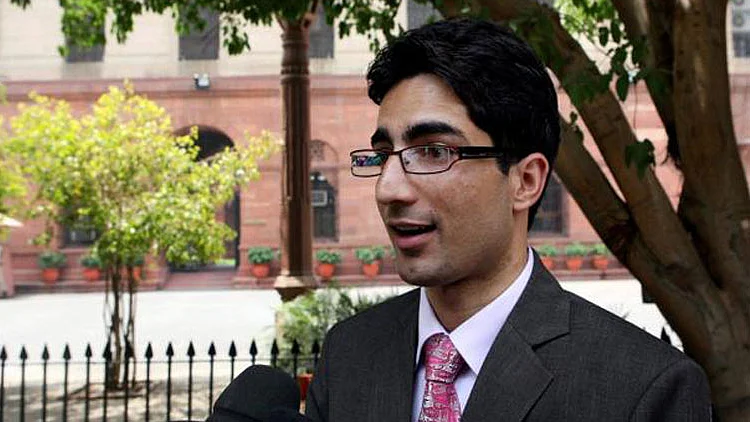Herald View: In defence of Shah Faesal and freedom to hold opinion
Modi government has actively politicised the bureaucracy, filling up vacancies with people with a particular political leaning and weeding out people leaning away from the ruling party

The IAS topper from 2009, Shah Faesal, has admittedly been a bureaucrat with a difference. He has been candid, even outspoken in public and has seldom shied away from commenting on critical issues.
But now a seemingly innocuous tweet by him has persuaded the Government of India that he is guilty of conduct unbecoming of an officer. A show-cause notice has been issued to the IAS officer from Jammu and Kashmir and DoPT has instructed the state government to initiate a departmental inquiry into his conduct. What the bureaucrat tweeted was innocuous enough.
He had merely stated that “patriarchy+population+illiteracy+alcohol+porn+ technology+anarchy= Rapistan”. Only a perverse mind could possibly have taken exception to factors that are widely acknowledged to be responsible for rapes, not just in India but across the world. The notice issued to the officer says that the Department of Personnel & Training (DoPT) under the Prime Minister’s Office has taken note of this particular tweet and found it objectionable enough to direct an inquiry.
While the inquiry must perforce wait the return of the bureaucrat, who is at the Kennedy School in Harvard on study leave, the senseless decision needs to be flagged as a witch-hunt. A plain reading of the tweet does not convey that it comes anywhere close to criticising the government or any criticism of a policy, which the DoPT apparently believes it is. It surely cannot be the Government’s case that the factors cited by the bureaucrat, namely patriarchy, illiteracy etc. do not exist in the country; nor can it be the Government’s case that these factors do not contribute to the culture of rape.
Fortunately, the inquiry against Shah Faesal appears to be the first instance when the Modi Government has chosen to formally test the rule. While the Government clearly has no case against the officer, the cussedness of the Government provides an opportunity to put old, colonial rules under the scanner.
The conclusion, therefore, is inescapable that instructions had been given to pull up the officer, even fix him on some pretext. But then the best laid plans of mice and men often go awry as we know.
Thankfully, the babu or babus in the PMO pounced upon this particular tweet to set an example. It has helped expose the pettiness of the PMO, its double standards and its intellectual bankruptcy. That it can make a hash of a fairly simple though devious, agenda is also a poor reflection on its grasp of rules and its integrity and efficiency, grounds on which it apparently finds the officer wanting. Soon after the Modi Government took over in 2014, All India Services (Conduct) Rules were tweaked to convey that officers were expected to be politically neutral.
The last four years of the Modi government have exposed the hypocrisy in the amendment. The Modi government has actively politicised the bureaucracy, filling up vacancies with people with a particular political leaning and weeding out people leaning away from the ruling party. Even as people handpicked by the RSS were given plum positions in the government, it turned a blind eye to a legion of officers who used the social media to laud the ruling party and the Prime Minister.
The Government has been equally indifferent to officers making objectionable and even inflammatory statements against minority and religious groups. To cite the example of an IAS officer of the Rajasthan cadre, Sanjay Dixit, although he has been called out a number of times for his tweets, neither the PMO nor the DoPT is known to have pulled him up. On the other hand, officers praising the first Prime Minister Jawaharlal Nehru or voicing their concerns against rioters and religious fundamentalists have been pulled up verbally and forced to delete their posts from social media.
Fortunately, the inquiry against Shah Faesal appears to be the first instance when the Modi Government has chosen to formally test the rule. While the Government clearly has no case against the officer, the cussedness of the Government provides an opportunity to put old, colonial rules under the scanner. Aren’t government employees entitled to hold views as citizens? And isn’t it an infringement on their rights as citizen to prevent them from sharing their opinion? As long as such opinion does not amount to incitement or is in violation of the law, can their views be suppressed? Who draws the line and where etc. are some of the questions which need to be addressed and soon.
Follow us on: Facebook, Twitter, Google News, Instagram
Join our official telegram channel (@nationalherald) and stay updated with the latest headlines
